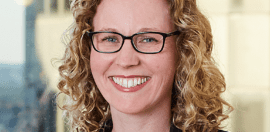Learnings from Brave Foundation’s ‘community nurture’ and virtual delivery model

11 June 2020 at 7:30 am
Brave Foundation has been supporting teams in a virtual and remote way for many years, underpinned by its vision of being the “most connected remote organisation in the world”. In this video from RESET 2020, founder and CEO Bernadette Black shares tips for supporting team and volunteer mental health.
When we prepared for our recent live show around mental and emotional wellbeing, we wanted an accompanying case study of an organisation who has already been “intentionally” implementing strong practices to support their teams working in a virtual and remote environment.
We couldn’t have asked for a more inspiring 45 minutes than with Tasmanian of the Year Bernadette Black, founder and CEO of Brave Foundation.
Bernadette talked us through a broad range of simple strategies that are part of the “community nurture” culture in the Brave “village”, the only national organisation that specifically supports expecting teenage parents to achieve their educational and vocational dreams. Brave has supported over 500 teen parents over the last two years, and is funded to deliver the largest federally-funded project to support expecting and parenting teens in the history of Australia.
Bernadette shared strategies such as skip level meetings, where she showed us how to create “uncomfortable silence” and open up space that could allow for teams to tell you what’s keeping them awake at night; implementing a buddy system for remote teams that has now been fully embraced by the village; reflecting back team members’ strengths in empowering ways; along with virtual Secret Santa and posting out small trinkets as ways to keep the community feeling connected and important.
Bernadette also reflected on how the organisation uses Town Hall meetings – and how they are intentional and deliberate in what they call their team meetings – to strengthen the sense of belongingness and connection, make announcements, celebrate the wins and also discuss serious matters.
Watch the case study interview below:
You can also watch the full recording of the live show.
There were no surprises with the live poll results at the live show, with 38 per cent reporting an increase in mental and emotional support needs in their teams, 25 per cent not being able to tell if their teams are okay; and 16 per cent feeling anxious about the future of their teams post-COVID-19.
Trauma specialist and psychologist Adam Blanch, together with people and culture specialist Leanne Hart – both subject matter specialists from The Xfactor Collective – shared the tell-tale signs of team members who are struggling, including tools such as the “Sad-Mad-Bad-Glad” tool. The specialists were also able to share how to look after your team’s wellbeing while working remotely, the differences between burn out, vicarious trauma and compassion fatigue, and how to help team members get through the pandemic.
Interesting take-outs from the conversation with Bernadette Black
- Using Town Halls in the strategy: “We all come together for a ‘town hall’ and it’s like having a town hall presentation and it’s for an important announcement, celebration or an important matter for the organisation as a whole. When we put out that we’re going to have a Town Hall, it heightens an expectation, so they know already it’s going to be important and we always have 100 per cent attendance. We also use them for difficult times, such as funding, and not knowing how things are going to be. The terming of what we call our meetings can really be helpful.”
- Elevating and reflecting individual strengths: “We also purposely looked at how we could support our team in ways that elevated people’s strengths. In my one-on-one with staff, I was able to say what I could see being people’s strengths going through this time – for themselves personally going through COVID, but also for Brave as well.”
- Building connectedness: “We did some unique things like send out little trinkets (a little Brave necklace) just to show them how important they are in the Brave village… We did the same thing with each of our expecting and parenting teens. We sent a book to each participant. To be able to bring in some of that light in a time when it is quite difficult, it’s also been really important for us.”
- Virtual Secret Santas: “We have sent out Secret Santas to each other in the post, and opened them up on ZOOM together.”
- Buddy system: “We’ve had a buddy system since day one and it’s grown to be led by staff. When we started it, we went from two to 21 overnight and we knew that for Brave values to shine through and for our staff to feel well supported, that we wanted to create a staff village around them as well, so we were really front footed about that. At the start it was a straw poll. That was really brilliant for our workforce and it didn’t matter what your role was. Being able to hang out, check in with each other and get to know each other a bit more.”
RESET 2020 National Research and Support Program is an initiative of The Xfactor Collective. The free online live shows and case study interviews are responding to the feedback from the RESET 2020 Research Study, and are designed to support organisations in this time of change and transformation.







